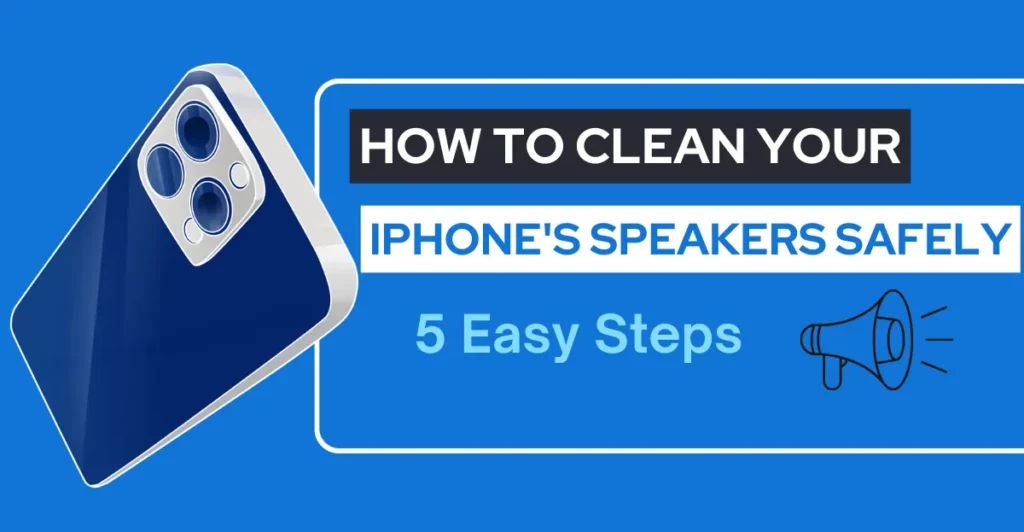To clean your iPhone’s speakers safely and maintain their cleanliness is not just about keeping your device looking pristine it’s crucial for preserving the sound quality your device can produce. Over time, dust, debris, and moisture can accumulate in the tiny crevices of the speakers.
Leading to muffled sound and, in severe cases, permanent damage. Moreover, improper cleaning methods can pose risks, potentially worsening the condition of your speakers or even leading to irreversible damage.
This guide provides a comprehensive approach to safely cleaning your iPhone’s speakers, ensuring they continue to deliver the high-quality sound you expect.
Importance of Speaker Maintenance
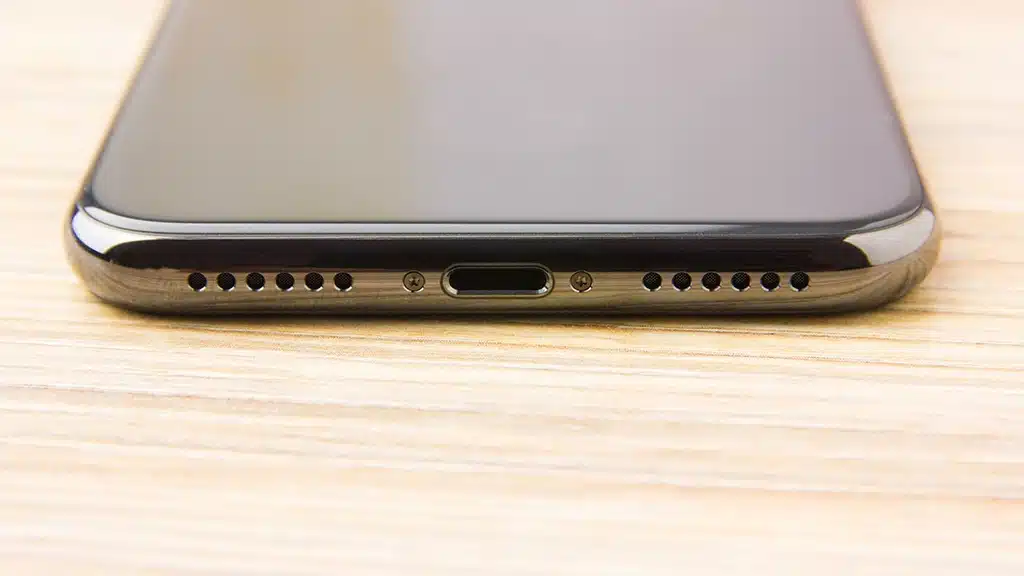
The speakers are among the most delicately designed components of your iPhone, crucial for everything from alarm tones to music and voice calls. Dust, debris, and moisture are the primary culprits that degrade speaker performance over time.
These unwanted particles can clog the speaker grilles, leading to distorted audio or, worse, speaker failure. Regular cleaning not only helps maintain optimal sound quality but also extends the longevity of the speakers themselves.
Preparing for Cleaning
Gather Necessary Materials: To clean your iPhone’s speakers safely, it’s essential to use the proper tools Arm yourself with a soft-bristled brush (such as a clean, dry toothbrush, or a brush designed for electronics), compressed air, a microfiber cloth, and sticky tack (optional).
Understanding Your iPhone’s Design: Familiarize yourself with the location of the speakers on your iPhone model. IPhones typically have speakers at the bottom edge and the earpiece at the top. Knowing their exact locations will help you clean more effectively and avoid damaging other parts of your phone.
Steps to Clean Your iPhone’s Speakers Safely
Step 1: Turn Off Your iPhone
Before you begin, power down your device to prevent accidental damage or electrical issues.
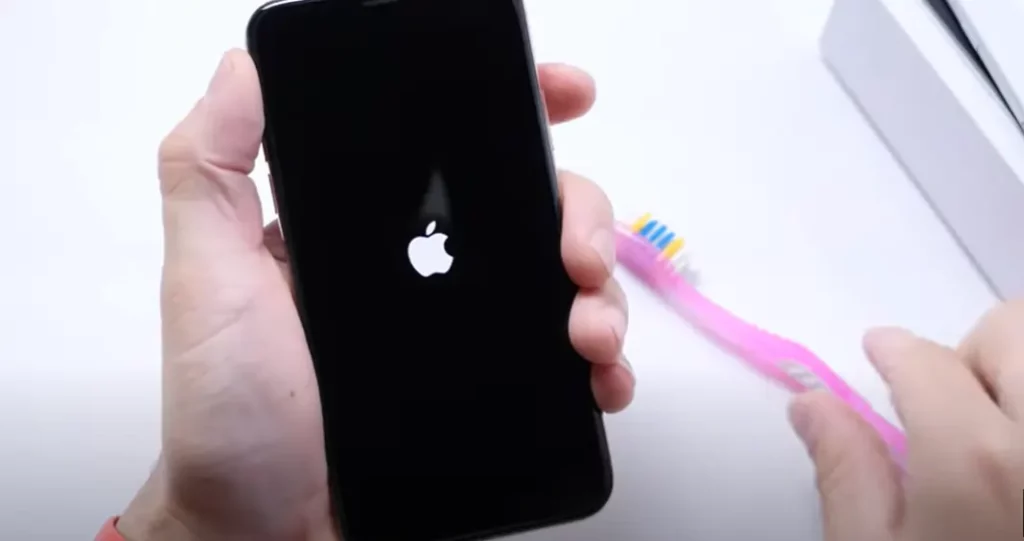
Step 2: Soft Brushing
Gently brush the speaker grilles using a soft-bristled brush. This will dislodge any loose dust or debris without pushing it further into the speaker.
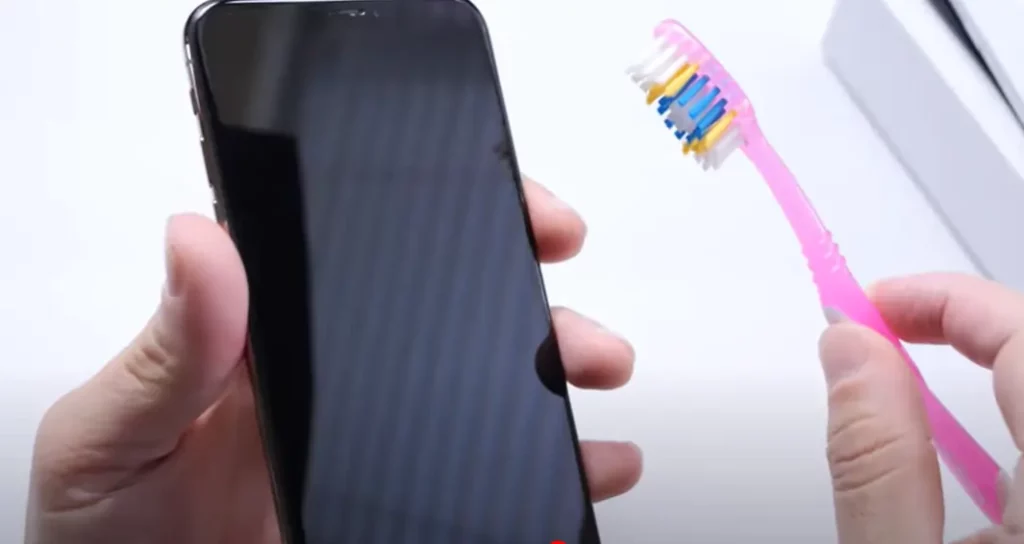
Step 3: Using Compressed Air
Hold the can of compressed air approximately an inch away from the speakers and give it a quick, light spray. This can help remove any dust particles that the brushing didn’t clear. Be careful not to overdo it, as too much pressure can damage the speakers.
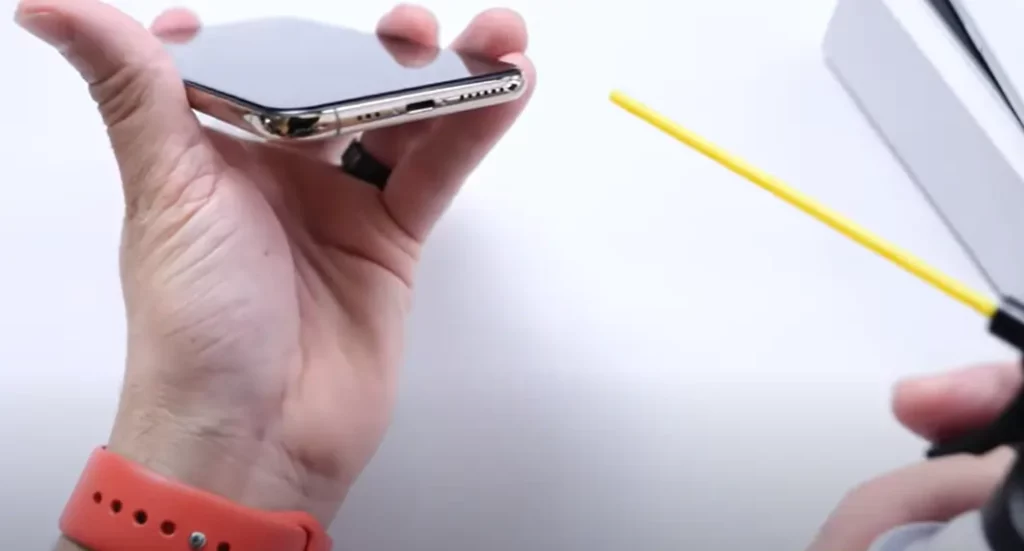
Step 4: Microfiber Cloth Tips
Dampen a corner of the microfiber cloth with water or alcohol (sparingly) and gently wipe the speaker grilles. Avoid letting any liquid seep into the speakers.
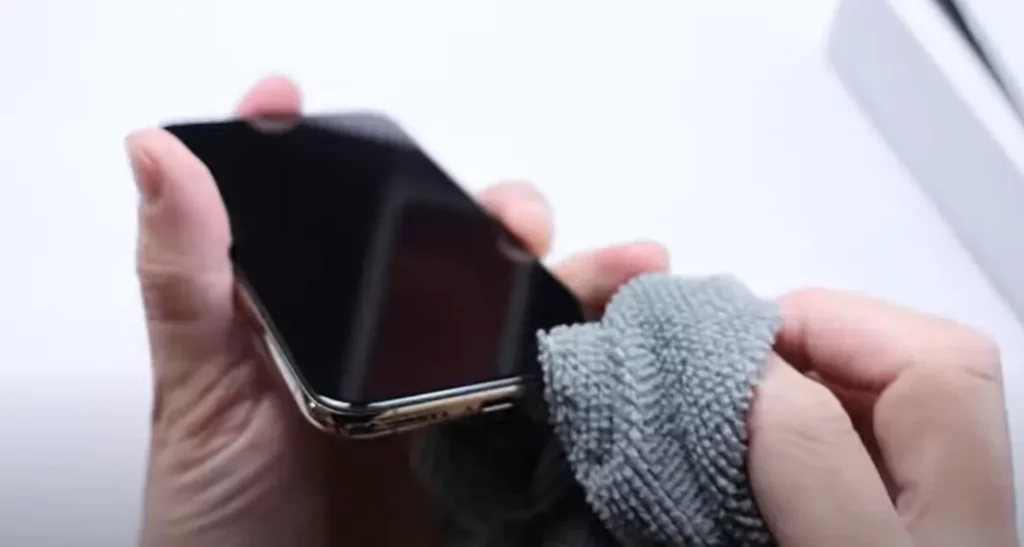
Step 5: Sticky Tack Method
For stubborn debris stuck in the grilles, you can use a small piece of sticky tack. Press it lightly against the grille and pull away. The debris will stick to the tack. Use this method with caution to avoid leaving any residue behind.
What to Avoid
When cleaning your iPhone’s speakers, certain substances and methods should be avoided to prevent damage:
- Liquid Cleaners: Spraying any form of liquid directly onto your iPhone can lead to moisture entering the speakers, potentially damaging the internal components.
- Sharp Objects: Using needles, pins, or any sharp tools to remove debris can puncture the speaker mesh and permanently harm the sound quality.
- Excessive Force: Applying too much force while cleaning, even with safe tools, can dislodge or damage the speaker components.
These methods are harmful because the speakers and their grilles are finely tuned components designed to be as compact as possible. Introducing liquids can cause corrosion or short circuits, while sharp objects can physically damage delicate parts.
Excessive force, even when using a brush or compressed air, can push debris deeper into the device or harm the sensitive components designed to produce sound.
When to Seek Professional Help
Sometimes, a simple cleaning might not resolve the issues with your iPhone’s speakers. Here are signs that professional help is needed:
- Persistent Muffled Sound: If the sound remains distorted or muffled after cleaning, there might be internal damage.
- Visible Physical Damage: Professional repair is necessary if the speaker grilles are punctured or if there’s visible damage inside.
- No Sound: If your speakers stop producing sound altogether, this indicates a possible internal failure.
Professionals can assess the damage accurately and perform repairs without risking further damage. They have the tools and expertise to disassemble parts safely, clean internals without causing harm, and replace components as needed.
Maintenance Tips to Keep Your Speakers Clean
Maintaining your iPhone’s speakers requires a proactive approach:
- Regular Cleaning Schedule: Set a reminder to clean your speakers gently every few months or more frequently if you’re in dusty environments.
- Preventive Measures: Use cases and screen protectors that help prevent dust and debris from getting into the speakers. Avoid exposing your iPhone to environments where it’s more likely to get dirty or wet.
Also, Read This: How to Easily Change File Type Extension on Your iPhone
Conclusion
Cleaning your iPhone’s speakers safely is crucial for maintaining the device’s audio quality and overall performance. Avoid harmful substances and methods that could damage the speakers, and be mindful of when it’s time to seek professional help.
Regular maintenance and preventive measures can go a long way in keeping your iPhone’s speakers clear and functioning well. By taking the right care of your device, you ensure that it continues to provide the best sound experience for your music, calls, and media consumption.
Remember, a little care goes a long way in preserving the quality and longevity of your iPhone’s speakers.



